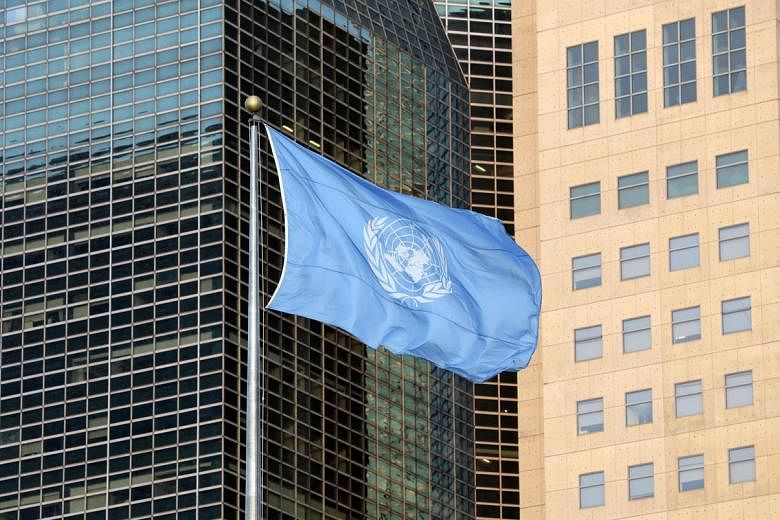BRUSSELS (REUTERS, AFP) - A failure to slash global emissions is setting the world on a "catastrophic" path to 2.7 degrees Celsius heating, UN chief Antonio Guterres warned on Friday (Sept 17) just weeks before crunch climate talks.
His comments come as a United Nations report on global emissions pledges found instead of the reductions needed to avoid the worst effects of climate change, they would see "a considerable increase".
This shows "the world is on a catastrophic pathway to 2.7-degrees of heating," Guterres said in a statement.
The figure would shatter the temperature targets of the 2015 UN Paris climate agreement, which aimed for warming well below 2 deg C and preferably capped at 1.5 deg C above pre-industrial levels.
"Failure to meet this goal will be measured in the massive loss of lives and livelihoods," Guterres said.
The UN said on Friday that countries' latest pledges to cut emissions would fail to avert catastrophic climate change, as pressure grows on polluters including China and India to set more ambitious targets before the COP26 summit in November.
The UN COP26 conference aims to secure more ambitious climate action from the nearly 200 countries who signed the Paris Agreement and agreed to try to limit human-caused global warming to 1.5 deg C.
The UN analysis released Friday said that under countries' current pledges, global emissions would be 16 per cent higher in 2030 than they were in 2010 - far off the 45 per cent reduction by 2030 that scientists say is needed to stave off disastrous climate change.
Without more ambitious commitments, global temperatures would rise to dangerous levels and unleash far more devastating impacts than those already battering countries around the world, from fatal floods to wildfires and storms.
"Overall greenhouse gas emission numbers are moving in the wrong direction," said UN climate chief Patricia Espinosa. "It's not enough, what we have on the table."
Ms Espinosa said she had received "very positive signals" in talks with some countries that new commitments would arrive before the COP26 summit in Glasgow, without naming any.
The United States and the 27-country European Union - the world's second- and third-biggest emitters after China - were among those that set tougher emissions-cutting targets this year.
Nations responsible for about half the world's emissions have yet to do so. China, India and Saudi Arabia are among them.
Brazil and Mexico submitted updated pledges that analysts said would cause higher emissions than those countries' previous targets.
COP26 president Alok Sharma said that "without action from all countries, especially the biggest economies, these efforts risk being in vain."
Countries including India have said they cannot cut emissions faster unless they receive more support from rich nations to invest in low-carbon energy and industries.
So far, promised support has not arrived.
The OECD said on Friday it was likely that wealthy countries missed a goal to contribute US$100 billion (S$134.4 billion) in 2020 to help developing nations cope with climate change.
The UN said it would publish another report on Oct 25, assessing any new climate pledges countries make before Oct 12.

